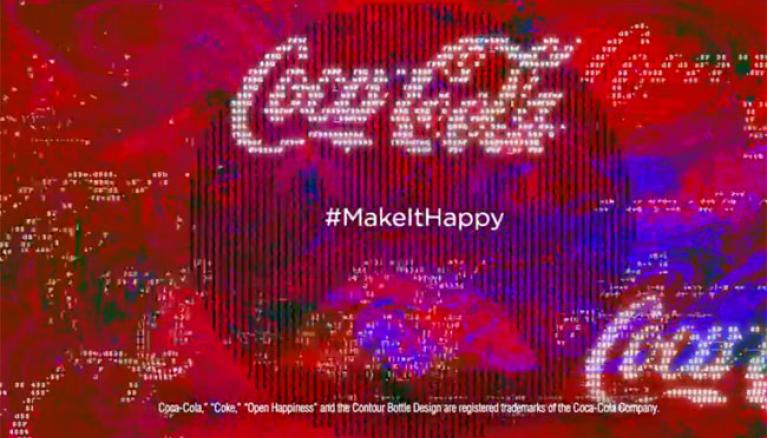I don’t preach every Sunday anymore, so I didn’t watch the Super Bowl looking for sermon illustrations in the commercials. In fact, I didn’t even watch the whole thing, my allegiance to Downton Abbey being too strong (which is a better source for sermon material, anyway—but that’s a subject for another post).
I did watch long enough to learn, finally, who Katy Perry is, and to see a few touching, some funny, and a couple crude commercials. And though I don’t preach regularly, my sermon-material antennae are still up out of habit. One commercial seemed especially to be begging, “Preach about me!”
The Coca-Cola commercial began with flickering images of hate-filled messages being sent across the internet and social media. The words flash across the screen: looser, ugly, stupid, hate. A man in anger kicks his computer off his desk.
We connect with him; we know how he feels. We are tired of hate.
Then a distracted Internet server technician spills a Coke into the server and the effervescent happiness that is Coke begins to spread throughout the world, as if through the Internet. Computers begin to glow with healing colors; arguing political pundits being watched online become friends; the rejected feel a sense of connection. A message sent to a lonely boy on a bus—“No one likes U”—suddenly becomes—“There’s no one like U.”
And the preacher, spying intimations of the Gospel, begins to read the commercial allegorically: the hatefulness of sin that infects our lives and our culture is transformed by the spreading power of love unleashed when Christ’s blood was spilled. Hate is transfigured. Those who are alienated, feeling liked by no one—not least God—discover that in God’s forgiving eyes, “There’s no one like U.”
Now, as they say, that’ll preach.
The question is: Should it?
I’m afraid we preachers hunger so much for our sermons to connect with our congregations that we too quickly, and uncritically, borrow from popular culture, without asking ourselves: Will this really help me say what the Gospel wants to say to these people?
Veteran teacher of preaching Tom Long warns in general of the reductive effect of sermon illustrations. An illustration is meant to shed light on something because of a perceived equality or similarity.
Do we really want to say: The Gospel is like Coca-Cola? Do we really want to say: Spread the love of Christ the way Coca-Cola spreads happiness throughout the world? Do we really want to dignify the world of consumerism by using it to “shed light” on the Gospel? The short-term gains—the perception of relevance and few nods of recognition—might be outweighed by distorting effects of the comparison.
This might be a better way: Use the Coca-Cola commercial to unmask the idolatry of consumption.
This company will spend millions of dollars a minute to convince you that happiness, meaning, and belonging are a Coke-machine away. That the fizzy goodness of Coke cascading down your throat will not only make you feel good, but will connect you to everyone else around the world thirsting for the same solution to their problems—a solution that can be bought.
When what the Gospel offers is something quite different—not a purchased solution to problems, but the invitation into a new way of life, with a new group of people, whose life together, over time, orients them to the worship of the only One who can help them discover the real worth of their lives. And that their deepest problems involve looking for solutions in the wrong places. Quick solutions they too often think they can buy.
It’s no longer a comparison; now it’s a contrast that allows us to tell both the truth about the consumerist lie, and the truth about the Gospel.
A truth that’ll preach.
The Rev. Dr. L. Roger Owens is associate professor of leadership and ministry at Pittsburgh Theological Seminary and teaches courses in the MDiv, Doctor of Ministry, and Continuing Education programs. Before coming to PTS he served urban and rural churches for eight years as co-pastor with his wife Ginger.

